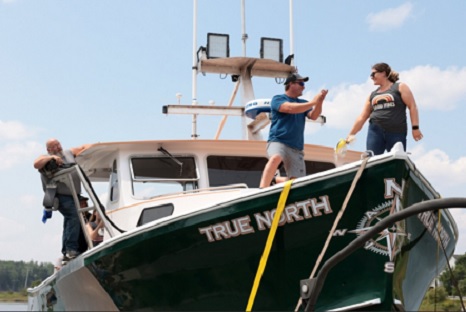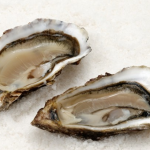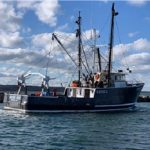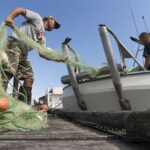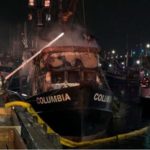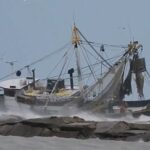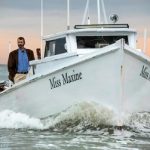Tag Archives: regulators
Regulators delay increase in minimum lobster size till July
 Regulators formally delayed increasing the minimum size of lobsters harvested in the Gulf of Maine to July. The Atlantic States Marine Fisheries Commission, the regulatory body that oversees the fishing industry, voted Monday to delay the resolution by six months. The changes were previously slated to take effect in January, but opponents have argued it would give Canadian lobstermen – unimpacted by the change, though they share the waters – an unfair advantage in the market. Lobstermen also have claimed the change could practically eliminate the harvest of some of the industry’s most popular lobster sizes. more, >>CLICK TO READ<< 21:06
Regulators formally delayed increasing the minimum size of lobsters harvested in the Gulf of Maine to July. The Atlantic States Marine Fisheries Commission, the regulatory body that oversees the fishing industry, voted Monday to delay the resolution by six months. The changes were previously slated to take effect in January, but opponents have argued it would give Canadian lobstermen – unimpacted by the change, though they share the waters – an unfair advantage in the market. Lobstermen also have claimed the change could practically eliminate the harvest of some of the industry’s most popular lobster sizes. more, >>CLICK TO READ<< 21:06
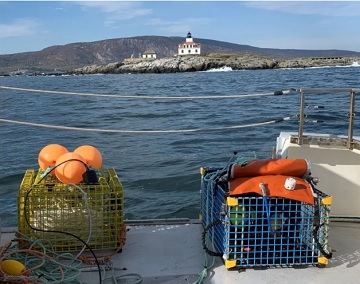
Hope vs. rope: Can technology save the whales, and Maine’s lobster industry, too?
Along the coasts of Massachusetts and Rhode Island, scientists, engineers, and fishermen are working feverishly to develop a new, high-tech way to harvest lobster – and the result could be the key to the survival of both the U.S. lobster fishery and the imperiled North Atlantic right whale. But farther north in Maine, the epicenter of the fishery, it’s unusually quiet. Only one Maine business is working on the technology, and only a handful of Maine lobstermen will test it. Many won’t even discuss it. The ropeless part is being worked out, but another critical component – an interoperable, open platform to track gear – is far from ready. The new equipment also is, at least for now, prohibitively expensive. One lobsterman said it would cost him nearly $500,000 upfront. >click to read< 16:20
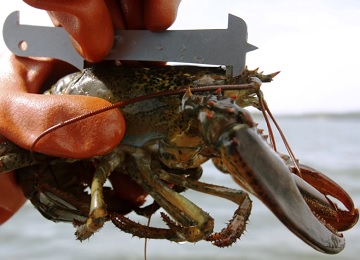
Regulators approve new lobster size limits in Maine to preserve young population
An Atlantic States Marine Fisheries Commission board has approved new measures that could change the minimum and maximum catch sizes for lobster in certain parts of Maine. The fisheries commission said it will gradually implement changes to measurement sizes by fractions of an inch in certain parts of the Gulf of Maine — but only if it observes a 35% decline in the young lobster population through trawl and trap survey data. Recent assessments have shown a 23% decline in juvenile lobsters, said Pat Keliher, commissioner of the Maine Department of Marine Resources. >click to read< 09:01
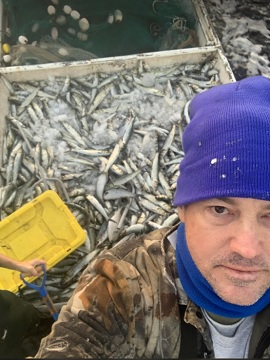
Us against Them
I’ve been commercial fishing since I was 17 and I’m 51 now and I’ve been forced out of several fisheries due to regulations, permits and closures. I would like to make an observation, every time I visit this group, I read several posts about someone else about to lose their livelihood and a part of their soul to another regulation or closure by people who we don’t know and, on most occasions, never even see. Do any of you really think this is the natural way of things or maybe this is planned out? >click to read< 15:42, By Gunner Gause
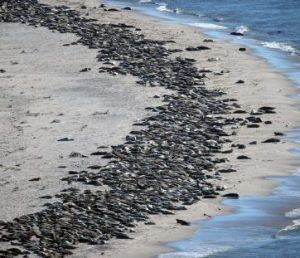
CLF says nothing short of an end to directed fishing – Another cut in cod fishing not enough for environmentalists
Fishing regulators are proposing another cutback to the catch limits for Atlantic cod, but some environmentalists say the move isn’t significant enough to slow the loss of the species. Atlantic cod fishing was once one of the biggest marine industries in New England, but the fishery has deteriorated after years of overfishing and environmental changes. Fishermen caught less than 2 million pounds of the fish in 2017, decades after routinely catching more than 100 million pounds annually in the early 1980s. It was the worst year for the fishery in its history. >click to read< 10:31
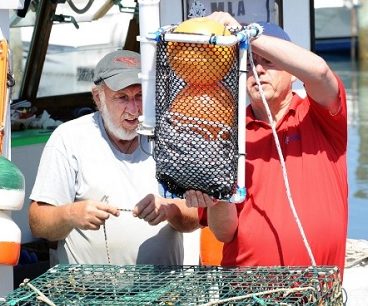
Ropes are latest flashpoint in tug of war over right whales
The lobster industry is willing to consider switching to weaker rope to protect the endangered right whale from deadly entanglements, but whale defenders say that doesn’t go far enough to help a species that can’t bear even one more death. A team of scientists, regulators, animal rights groups and fishermen met this week in Providence to review proposals,,, The team is advising the National Marine Fisheries Service on how to prevent whales from getting entangled in fishing gear as they migrate, feed and mate as they travel back and forth along the East Coast of the United States and Canada. >click to read<11:54
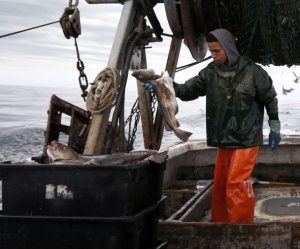
New England: Centuries-old cod fishery had worst year in history in 2017
One of the most historic fisheries in the country hit an all-time low last year as cod fishermen continued to struggle with choking quotas and low abundance of the fish. Maine’s cod fishery has existed since at least the early 17th century, and it was once one of the strongest in the country. The fishery peaked at more than 21 million pounds of cod, a fish often used with the fish and chips dish, in 1991.,,, One reason for the collapse is that federal quotas for cod are so low many fishermen are just avoiding them altogether, said Terry Alexander, a veteran fisherman out of Portland and Boston. Cod fishermen typically also seek other species, such as haddock and flounder, and they must stop fishing altogether once they reach quota for cod, per the rules. >click to read<11:15
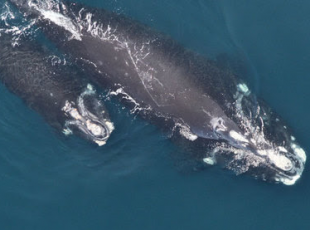
Right whale deaths spur regulators to eye fishing gear modifications
This has been a tough year for North Atlantic right whales. Late in October, according to the International Fund for Animal Welfare, the badly decomposed carcass of a right whale was found ashore on Nashawena Island, south of Cape Cod in Massachusetts. It was the 16th of the highly endangered species known to have died in U.S. or Canadian waters in 2017. Starting in the early spring and continuing through the late summer months, a dozen dead right whales were found floating in Canada’s Gulf of St. Lawrence.,,, Last year, the NOAA Fisheries Large Whale Take Reduction Team (TRT) began a five-year review click here to read the story 08:23
Fishermen, regulators disagree over cause of Brunswick fish kill
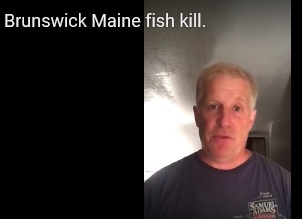 As a massive vacuum truck from Clean Harbors traveled along the shoreline near Simpsons Point midweek to clean up rotting pogies, local fishermen were battling what they say was a raft of misinformation put forth by the state about how and why those pogies were dumped from a local fishing vessel on June 6. On Tuesday, a day after residents of the Simpsons Point area asked town councilors to help pay for a professional cleanup of the fish, local lobsterman Steve Anderson posted a 10-minute video on YouTube, taking local media to task for only reporting part of the story and excoriating the Maine Department of Marine Resources for a quota system Anderson said simply doesn’t work.,,, But Jeff Nichols, spokesman for the DMR, said Friday that Anderson “got a lot of things wrong,” click here to read the story 08:35
As a massive vacuum truck from Clean Harbors traveled along the shoreline near Simpsons Point midweek to clean up rotting pogies, local fishermen were battling what they say was a raft of misinformation put forth by the state about how and why those pogies were dumped from a local fishing vessel on June 6. On Tuesday, a day after residents of the Simpsons Point area asked town councilors to help pay for a professional cleanup of the fish, local lobsterman Steve Anderson posted a 10-minute video on YouTube, taking local media to task for only reporting part of the story and excoriating the Maine Department of Marine Resources for a quota system Anderson said simply doesn’t work.,,, But Jeff Nichols, spokesman for the DMR, said Friday that Anderson “got a lot of things wrong,” click here to read the story 08:35
Brunswick Maine fish kill. The Real Story, not that Fake News stuff. – click here to watch the video
Scallop fishermen poised for fight over shellfish, fishermen and regulators to meet Wednesday
Scallop fishing has increased dramatically off some parts of New England recently, and 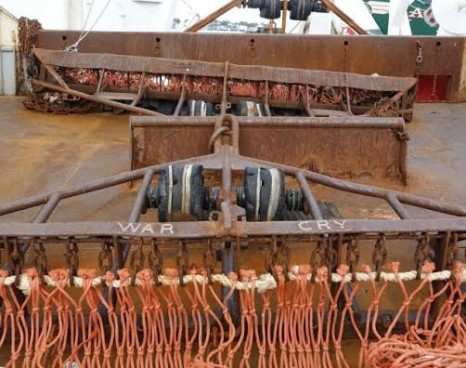 will soon meet to discuss how to avoid overexploiting the valuable shellfish. The concern over scallop fishing centers on the northern Gulf of Maine, a management area that stretches roughly from the waters off of Boston to the Canadian border. Scallop grounds off of northern Massachusetts have been especially fertile, prompting increased fishing in that area. The New England Fishery Management Council, a regulatory arm of the federal government, will hold a public meeting about the issue Wednesday (links here)and decide how to proceed. Alex Todd, a Maine-based fisherman who fishes off of Gloucester, Massachusetts, said he and others feel the rules are not equal. Read the rest here 11:46
will soon meet to discuss how to avoid overexploiting the valuable shellfish. The concern over scallop fishing centers on the northern Gulf of Maine, a management area that stretches roughly from the waters off of Boston to the Canadian border. Scallop grounds off of northern Massachusetts have been especially fertile, prompting increased fishing in that area. The New England Fishery Management Council, a regulatory arm of the federal government, will hold a public meeting about the issue Wednesday (links here)and decide how to proceed. Alex Todd, a Maine-based fisherman who fishes off of Gloucester, Massachusetts, said he and others feel the rules are not equal. Read the rest here 11:46
Regulators worry NE fishermen are cheating
— Regulators say they’re worried fishermen are cheating by fishing in one area, then claiming the catch is from another. Read more






